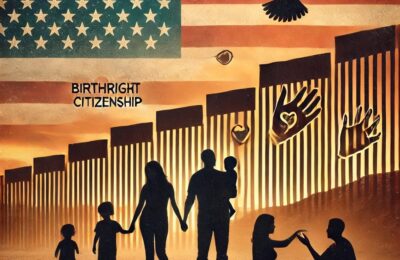This is Part 10 of the series What is a Biblical Worldview?
In our rapidly changing world, cultural issues like sexual identity, religious liberty, and the sanctity of life have become flashpoints that often divide society. As Christians, we are called to engage these issues with both truth and grace, guided by a biblical worldview. This post will explore how a biblical perspective can provide clarity and solutions, ultimately fostering cultural renewal grounded in God’s truth.
Theological Insights
UNDERSTANDING A BIBLICAL WORLDVIEW
A biblical worldview is a framework that helps us interpret and respond to the world around us through the lens of Scripture. At its core, it encompasses four key themes: Creation, Fall, Redemption, and Restoration.
Creation: We believe that God is the Creator of all things, and this truth shapes our understanding of human identity and purpose. Genesis 1:27 declares, “God created man in His own image, in the image of God He created him; male and female He created them”. This foundational truth underscores the inherent value and dignity of every person, guiding our approach to issues like sexual identity and human rights.
.Fall: The entrance of sin into the world has distorted God’s perfect creation. As Romans 3:23 states, “For all have sinned and fall short of the glory of God”. This understanding helps us recognize the brokenness in the world, including in our personal lives and societal structures.
Redemption: Through Jesus Christ’s sacrificial death and resurrection, God offers redemption and reconciliation to all who believe. As 2 Corinthians 5:17 reminds us, “Therefore, if anyone is in Christ, he is a new creation; the old things passed away; behold, new things have come”. This transformative truth empowers us to bring the message of hope and renewal to a world in need.
Restoration: The ultimate promise of Scripture is the restoration of all things. Revelation 21:5 proclaims, “Behold, I am making all things new”. This future hope informs our present actions, motivating us to work toward justice, peace, and healing in our communities.
APPLYING SCRIPTURE TO CULTURAL FLASHPOINTS
Sexual Identity: In a world where sexual identity is a source of confusion and conflict, the biblical worldview offers clarity. Scripture teaches that God created humans as male and female, with complementary roles and purposes. This understanding, grounded in Genesis 2:24, supports the sanctity of marriage as a union between one man and one woman. At the same time, we are called to love and respect all individuals, offering compassion and truth in our interactions.
Religious Liberty: Religious freedom is a fundamental right rooted in the biblical principle of free will. As Acts 5:29 states, “We must obey God rather than men”. This conviction calls us to defend our ability to worship and practice our faith without coercion. However, we must also respect the rights of others to hold different beliefs, fostering dialogue and mutual understanding.
Sanctity of Life: The belief that every life is sacred is central to the biblical worldview. Psalm 139:13-14 beautifully articulates this truth: “For You formed my inward parts; You wove me in my mother’s womb. I will give thanks to You, for I am fearfully and wonderfully made”. This conviction drives our commitment to protect and defend life at all stages, from conception to natural death.
Practical Applications
ENGAGING CULTURE WITH A BIBLICAL WORLDVIEW
Speak Truth with Love: Ephesians 4:15 encourages us to “speak the truth in love”.When addressing cultural issues, we must balance truth and grace, engaging others with respect and understanding while standing firm in our convictions.
Be a Light in the Darkness: Matthew 5:16 calls us to “let your light shine before men in such a way that they may see your good works and glorify your Father who is in heaven”. Our actions should reflect the love and truth of Christ, serving as a beacon of hope and transformation in our communities.
Advocate for Justice: Micah 6:8 reminds us that the Lord requires us “to do justice, to love lovingkindness, and to walk humbly with your God”. As we engage with cultural flashpoints, we should work toward justice and equality, advocating for policies and practices that uphold the dignity and worth of every person.
Pray for Wisdom and Guidance: James 1:5 promises, “But if any of you lacks wisdom, let him ask of God, who gives to all generously and without reproach, and it will be given to him”. In navigating complex cultural issues, we must rely on prayer and seek God’s wisdom to guide our words and actions.
Conclusion
Addressing cultural flashpoints from a biblical perspective requires a deep understanding of Scripture and a commitment to living out our faith in every aspect of life. We can engage with current issues thoughtfully and compassionately by grounding ourselves in the biblical worldview, offering solutions rooted in God’s truth and love.
As we navigate these challenges, let us remember the words of C.S. Lewis: “You can’t go back and change the beginning, but you can start where you are and change the ending.” May we strive to be agents of cultural renewal, bringing the hope and light of Christ to a world in need.
References
- Colson, C. (1999). How Now Shall We Live? Tyndale House.
- Koukl, G. (2017). The Story of Reality: How the World Began, How It Ends, and Everything Important that Happens in Between. Grand Rapids: Zondervan.
- Lewis, C. S. (2015). Mere Christianity. Revised and enlarged. New York: Harper One.
- Phillips, W. G., Brown, W. E., & Stonestreet, J. (2008). Making Sense of the World.Salem, WI: Sheffield.
- Watkin, C. (2022). Biblical Critical Theory: How the Bible’s Unfolding Story Makes Sense of Modern Life and Culture.
- Guinness, O. (2021). The Magna Carta of Humanity: Sinai’s Revolutionary Faith and the Future of Freedom. Intervarsity Press.
- Sire, J. W. (2009). The Universe Next Door. 5th Ed. Downers Grove, IL: InterVarsity Press.
- Naugle, D. K. (2002). Worldview: The History of a Concept. Grand Rapids: Eerdmans.
In our next blog post, we’ll explore how a biblical worldview offers clarity and guidance on divisive cultural issues like sexual identity and religious liberty. Discover practical strategies for engaging these flashpoints with truth and love, fostering cultural renewal grounded in God’s truth.





